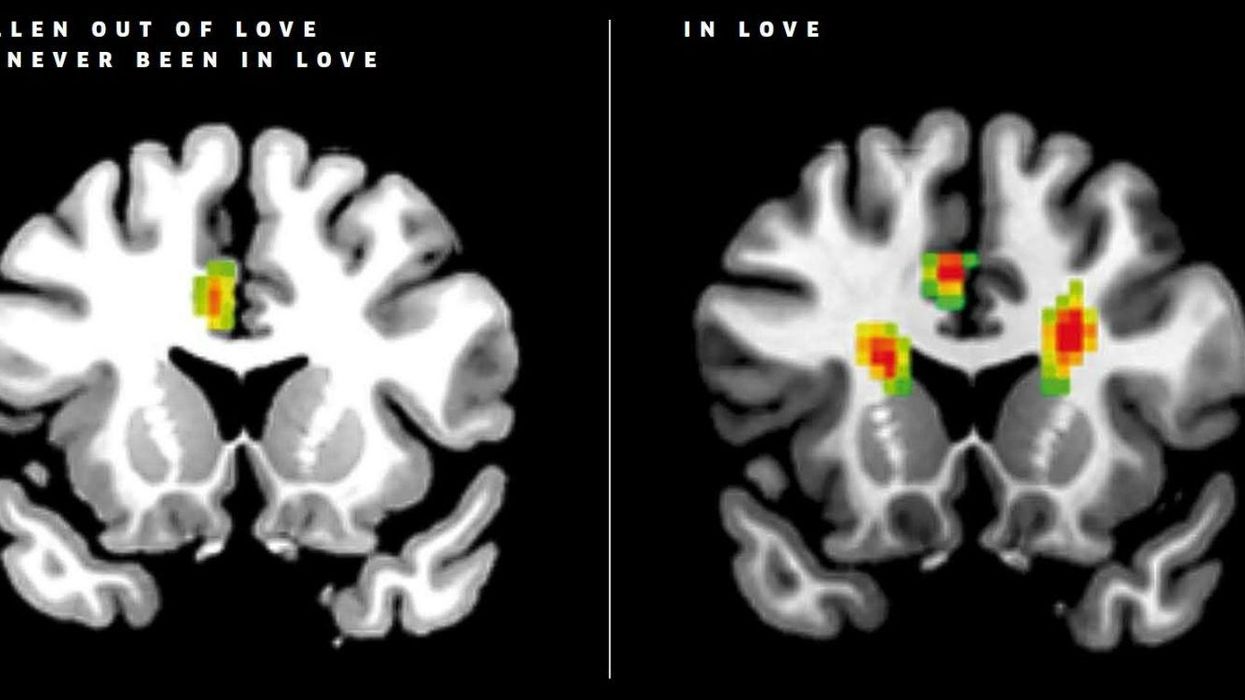Science & Tech
Roger Dobson (edited
Mar 15, 2015

By comparing fMRI scans of 100 people who said they are in love with people who have never been in love, or have recently fallen out of love, scientists believe they have pieced together the first-ever map of the changes that love induces in people's brains.
The functional magnetic resonance imaging scans (fMRI) measured brain activity by detecting changes in blood flow, and they indicated around a dozen areas of the brain are involved with love, and one - the caudate nucleus - specifically deals with ending love affairs.
Professor Xiaochu Zhang of the University of Science and Technology of China in Hefei, who led the study, said:
Our study provides the first evidence of love-related alterations in the underlying architecture of the brain and the results shed new light on the mechanisms of romantic love.
Such romance. So love.
Source: Frontiers in Human Neuroscience
More: [10 old words for love we all need to start using again]1
More: [Is there a mathematical formula for love?]2
More: [These are the best 20 places in Britain to find love]3
More: [These are the 10 greatest love letters of all time]4
Top 100
The Conversation (0)













